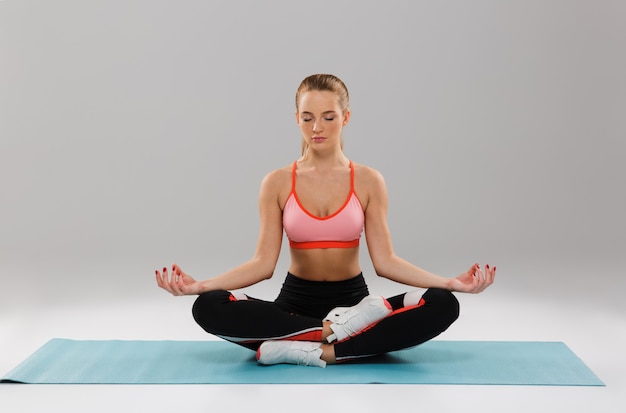
Yoga isn’t just about becoming more flexible; it’s also great for improving memory, heart health, and bone strength. Nowadays, many people in the UK are into yoga, spending about £790 million each year on classes and mats. Yoga has evolved to include some unusual variations like rage yoga, naked yoga, and even dog yoga. But beyond these quirky trends, scientific research continues to highlight yoga’s real health benefits.
For instance, researchers at UCLA found that a three-month yoga and meditation course was more effective than traditional memory exercises in reducing age-related brain decline. They also discovered that yoga could improve sleep quality in breast cancer survivors.
Lucy Edge, a 53-year-old former advertising executive, turned to yoga after experiencing a deep depression. Instead of taking prescribed antidepressants, she took a six-month break to practice yoga in India. This experience brought her a sense of happiness and contentment that she hadn’t felt before. She went on to write books about yoga and started Yoga Meds, a section on her website listing over 300 clinical trials on yoga’s numerous benefits.
Yoga isn’t just about mental health; it’s also beneficial for your body. The UCLA study involved brain scans and memory tests, comparing 12 weeks of memory exercises with a similar period of yoga and meditation in people over 55. Those who practiced yoga showed better memory improvements, reduced depression and anxiety, and increased stress resilience. Dr. Clare Walton of the Alzheimer’s Society even suggested further research into yoga’s benefits for keeping the heart and brain healthy as we age.
If you want to try yoga yourself, you don’t need to commit hours every day. In the UCLA study, participants did one hour of Kundalini yoga each week, which includes gentle movements, breathing techniques, and meditation. They also practiced Kirtan Kriya, a form of meditation involving chanting and visualization.
Yoga might also be better for your heart than you think. A 2014 review published in the European Journal of Preventative Cardiology revealed that yoga could reduce the risk of heart disease as effectively as conventional exercises like walking. Yoga helps lower stress, which is a major factor in heart disease, by reducing blood pressure and heart rate.
Practicing yoga has also been linked to improved emotional health. Dr. Mike Knapton of the British Heart Foundation mentioned that yoga could help with anxiety, stress, and depression, which often affect heart disease patients. Additionally, yoga has shown improvements in blood pressure, cholesterol, and weight—all risk factors for heart disease.
For those new to yoga, starting with gentle sessions like those described by Charlotte Watts, a yoga teacher and author, can be helpful. Restorative yoga, recommended by Anna Ashby of Triyoga Studios, is another approach that focuses on reducing stress by using supported postures held for extended periods.
Sarah Shone, a physiotherapist and yoga teacher, developed yoga classes to help with back pain, which she later integrated into a rehabilitation program. An impressive 87% of participants reported pain relief. The National Institute for Health and Care Excellence (NICE) even includes yoga in its guidelines for lower back pain.
Yoga can also boost bone health and muscle strength, including the pelvic floor muscles, which is crucial for preventing issues like incontinence. If you’re just starting out, choose a gentle style like Hatha or Iyengar and inform your instructor of any health conditions. For specific issues like back pain, ask your doctor if you qualify for a yoga course through an exercise referral scheme.
Good yoga props can make your practice more enjoyable. When selecting a mat, consider factors like where you’ll keep it, its weight, and its thickness. A thick mat can protect your joints during practice. Healthista recommends the Elephant Cork Yoga mat from Valka Yoga, which is eco-friendly and durable. It’s made from organic cork and natural rubber and is both renewable and recyclable.
The mat also provides good grip, especially when wet, making it ideal for practices like hot yoga. Additionally, it’s antimicrobial and odor-resistant. Each mat comes with a carry strap, a 15-day money-back guarantee, and a one-year replacement warranty.
For added support, you might try the Valka yoga block, which helps with stability and grip during difficult poses. Whether you’re flexible or not, yoga can benefit anyone. Try different styles like Yin, Restorative, Vinyasa Flow, Iyengar, Anusara, or Yoga Therapy to find what suits you best.
So, if you’re looking to start or deepen your yoga practice, why not give it a try? It offers a wide range of health benefits, and there are so many styles to choose from that there’s something for everyone.